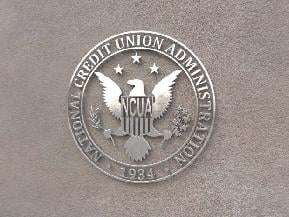WASHINGTON – It could use some further tweaking, but the executive director of the Check Payments System Association opines that the “Check Clearing for the 21st Century Act,” also known as the “Check 21″ Act, is worth keeping on eye on. Wade Delk attended the September 28th hearing by the House Financial Services Committee on H.R. 5414 (CU Times, Oct. 2), and he has reviewed the provisions of the act. Although the Check Payments System Association has not taken a formal position on the measure, Delk said, “Anything that makes checks easier for consumers to use and takes cost out of the system we’re in favor of.” He added though that, “there are still pieces in the measure that have to be worked out,” specifically provisions addressing fraud prevention. Delk point out that fraud prevention technology that’s been implement for checks such as thermochromatic ink, may not necessarily translate into truncated checks. Delk said he is confident fraud potential issues could be worked out, “but legislators need to pay attention to these issues. Paul Malone, vice president of check products for Liberty Check Printers said the company also had “no formal corporate position” on the measure, but he concurred with Delk that, “Anything that contributes to keeping checks economical and easy to use is something we’re interested in. Check printers have always been in favor of check imaging.” Having said that, Malone added that, “The payment system works well the way it is, and it’s economical. It’s not a broken wheel, but of course it could be improved.” Malone said he was aware that consumer groups such as the Consumers Union, are opposed to H.R. 5414 because, they argue, the measure is not in consumers’ best interests (CU Times, Oct. 9). He said that he too is concerned about how consumers would react to knowing they would not get their cancelled paper checks back each month that they’ve become accustomed to receiving. “Credit union members have always had their checks truncated, but the majority of consumers don’t know what truncation is, and they’re used to having their original cancelled checks returned to them each month,” said Malone. “Nobody knows how consumers will react. Maybe they won’t mind, but maybe they will.” The fact that consumers’ would not get back heir original cancelled paper check each month is the Consumers’ Union main bone of contention with “Check 21.” Among the other reasons the organization isn’t a fan of the measure is it says H.R. 5414 doesn’t effectively protect consumers from new errors that check imaging could cause, and the act gives consumers who write checks that are converted into images weaker rights than consumers who initiate electronic funds transaction. While those are valid points, Malone said he is more concerned about where the truncation would happen for financials. “Credit unions,” said Malone, “are accustomed to truncating using their own processors. But it’s different when truncating in your house compared to when your check is being truncated across the country in someone else’s data processing system. How financial institutions would make this work since truncation would be out of their hands needs to be addressed.” -
 Search
Search














 Copyright © 2024 ALM Global, LLC. All Rights Reserved.
Copyright © 2024 ALM Global, LLC. All Rights Reserved.